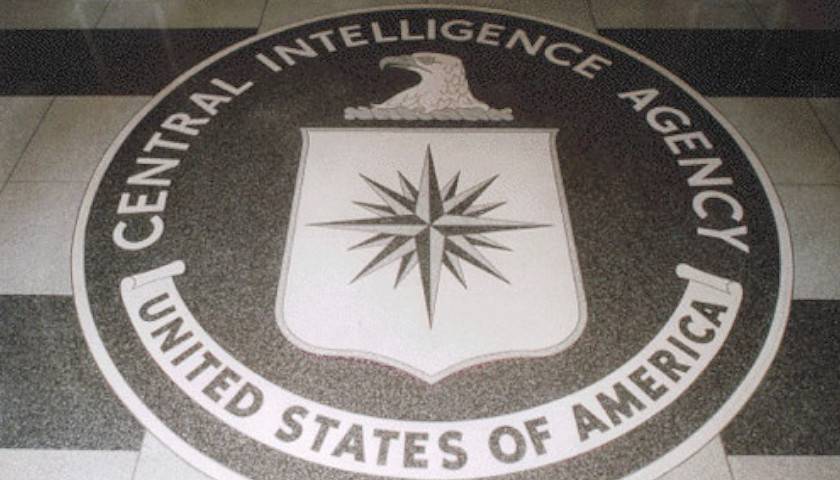by Philip Reichert
In the current discourse surrounding the U.S. Intelligence Community (IC), a prevailing narrative has emerged, as highlighted in a recent Politico article, that mistakenly warns of a future Trump administration’s destruction of the IC as we know it. This perspective is biased and misguided. The real crisis in the Intelligence Community is not what Trump will do if reelected but how to resolve the total erosion of public trust in the IC due to the actions of the D.C. intelligence establishment over the past several decades.
The intelligence officials quoted by Politico, in decrying politicization, ironically contribute to it, exacerbating the broader loss of faith in our institutions. The Intelligence Community, a cornerstone of our national security, must operate insulated from politics — a necessity for its credibility and effectiveness in safeguarding national interests.
The moment intelligence becomes a pawn in political games, it loses its credibility. Intelligence professionals must be quiet professionals driven by a commitment to truth and security, not political agendas.
Of course, the Intelligence Community has not remained insulated from politics, and its credibility has been tarnished as a result. The American public has developed a profound skepticism of intelligence practices, and Republican support for the IC fell from 71 percent to 51 percent from 2020 to 2022. In addition, trust in the FBI is at record lows, with only 17 percent of Republicans having a positive view of the agency.
The “entrenched D.C. intelligence apparatus,” a term I use to encompass long-time government officials, policymakers, and certain elements within the intelligence community itself, is largely to blame for this dramatic loss of trust by the American people.
In fact, to the broader public, the Intelligence Community is known mostly for various scandals over the last few years. These include coordinating with big tech companies to censor Americans and control the public narrative, the handling of the Hunter Biden laptop reveal — where a letter signed by former IC heads declared it Russian propaganda for partisan reasons — and the selective targeting of groups like anti-abortion advocates and devout Catholics.
Agencies have also labeled parents who oppose inflammatory policies in schools as “domestic terrorists,” and the leak of classified documents has become a regular fixture of news headlines. When I enlisted as an intelligence analyst in the Army in 2015, sensitive compartmented information facilities (SCIFs) were not common knowledge. Now, users on X casually throw around the term in online debate regarding classified information. You see, there’s no need to warn of politicization in the IC. The IC has already been politicized and has found a willing partner in American mainstream media.
Of course, even when the Intelligence Community focuses on its mission, it tends to make very public mistakes. Unexplained secrets like the Chinese balloon, a massive intelligence failure precipitating the withdrawal from Afghanistan, and ignored warnings leading up to Jan. 6 are just a few notable failures from only the past few years. It may be difficult in an industry where your failures are front-page news while your successes stay classified, but a legacy of high-profile intelligence and communication failures are much harder to ignore when the American people no longer trust you.
The credibility of the Intelligence Community is its currency; without it, its insights may be ignored during international turmoil. Safeguarding the integrity of the IC, therefore, is critical. It does us no good to have the most advanced and capable intelligence apparatus on the planet if the American people cannot rely on it to serve its function without political bias or meddling.
It is not the IC that is solely to blame, however. Officials and lawmakers have increasingly used the Intelligence Community as a political cudgel with which to push their narratives, which has elevated it in the public consciousness. Selective release of intelligence and citing intelligence officials to attack political opponents are tactics growing more common in Washington.
Restoring public trust in the IC is imperative. This can only be achieved by addressing the systemic issues within the D.C. establishment that have contributed to the politicization of intelligence. Donald Trump was not the person who brought about this mistrust; the very community of officials who now run to the media to prevent his reelection are to blame.
The increasing politicization and waning public trust in the IC will eventually lead to a consensus on the need for substantive reform of the intelligence apparatus. This is not as radical as it sounds; instead, it represents a realignment of the Intelligence Community’s operations with its foundational principles. This may involve a thorough restructuring, possibly under the guidance of a bipartisan commission, with the aim of eliminating entrenched biases and restoring public trust.
In conclusion, the issue at hand is not about the potential actions of any administration, least of all Trump’s. It has to do with a deep-seated problem within the Intelligence Community itself — a deviation from its core principles of neutrality and objectivity.
– – –
Philip Reichert is a conservative writer and activist. He is a former U.S. Army intelligence analyst, contractor for the U.S. Space Force, and producer at Fox News.
Photo “CIA Logo” by Global Panorama. CC BY-SA 2.0.




